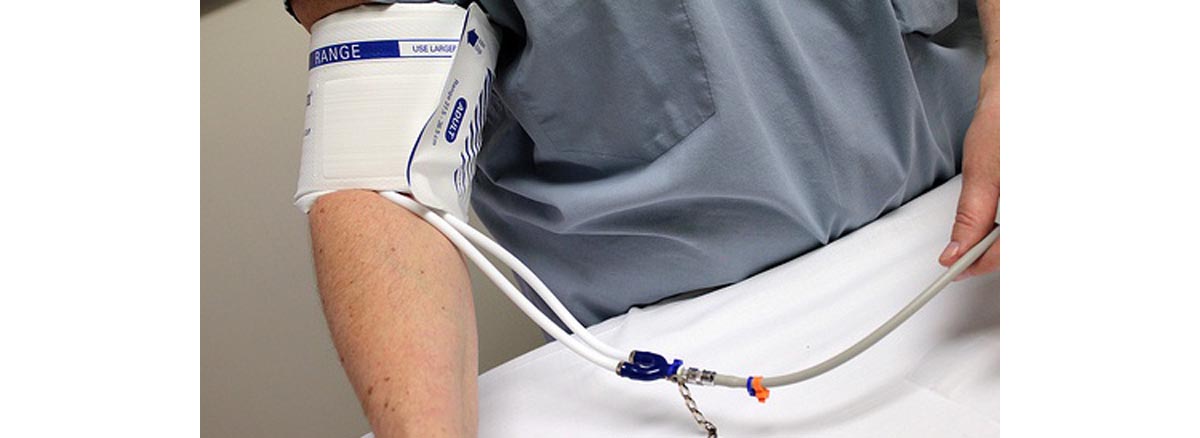Did you know that one in three American adults suffers from high blood pressure? Are you one of them? Before you decide to turn to hypertension medication, you may wish to explore different treatments such as natural treatments. What kinds of natural treatments are there to treat your high blood pressure? And much more importantly, do they really work?

What Exactly Is High Blood Pressure?
"Blood pressure" refers to the pressure with which the blood pushes against the walls of your blood vessels, and especially the arteries, as your heart pumps blood all around your body. A person's blood pressure levels depends on a great number of different factors. These could include the strength of a person's heartbeat, how elastic the blood vessels are, both the age and health of a person, and also their blood volume.
High blood pressure, also known as hypertension, is a blood pressure that will rise beyond your normal levels. Hypertension, as mentioned earlier, is a very common problem, affecting as much as one in three adults in the United States! Many people actually suffer from high blood pressure levels without even knowing it, because high blood pressure usually does not cause any noticeable symptoms.
When Measuring Blood Pressure, Two Separate Things Are Measured
When measuring your blood pressure, two different things are measured — the systolic and diastolic blood pressure levels. Systolic refers to the blood pressure when the heart is pumping blood around your body, while diastolic is the blood pressure when the human heart is in between two beats. When your blood pressure levels are measured, you will see the systolic number written down before the diastolic.
Have you been diagnosed with high blood pressure by your doctor? Or perhaps you have simply been measuring your own blood pressure levels? A systolic of 140 or more, and a diastolic of above 90 indicates you have high blood pressure. If you notice your blood pressure levels are too high, you should certainly seek medical attention right away.
High blood pressure puts a person at risk of many different health complications. Your arteries can be damaged and can even harden over time. This is known as arteriosclerosis, which can in turn lead to all kinds of complications ranging from eye damage to a heart attack or even stroke. An aneurysm, where a section of an artery weakens significantly and can even rupture, is another possible consequence of hypertension.
Heart damage may be the most obvious risk when you think of of high blood pressure, but you might not know that your brain may very well be in danger too if you suffer from uncontrolled high blood pressure. Believe it or not, hypertension does not just place you at an increased risk of having a stroke as you might first think — dementia is another danger of high blood pressure! Your internal organs can also be damaged if you have high blood pressure that is not controlled in some way.
It is very clear, in other words, that high blood pressure should never be left untreated as it can lead to many medical consequences. However, many hypertension patients do wonder if they could successfully and permanently bring their blood pressure levels back down to a safe level without the use of conventional medications. There are many natural high blood pressure treatments. Do they work?
Natural Hypertension Remedies
Natural hypertension treatments fall into two groups — lifestyle changes that tend to lower a person's blood pressure, and targeted treatments by means other than conventional medicine. Both of these steps are best discussed with, and monitored by, a competent doctor.

People who are first diagnosed with hypertension will need regular medical check-ups in any case, to ensure that chronic hypertension is the right diagnosis.
You can use this as an opportunity to experiment with natural remedies for high blood pressure. What are the main natural hypertension remedies? Out of the many things you can do, your doctor may suggest you:
-
Stop smoking if you are a smoker.
-
Cut down on salt, by minimizing the amount of processed food you eat and by not adding salt to home-cooked meals.
-
Exercise regularly — 30 to 60 minutes a day — to see if it will bring your blood pressure down.
-
Eat a healthy and balanced diet to reduce your cholesterol, if that applies to you.
-
Lose weight to reach a healthy Body Mass Index, again if this applies to you.
-
Watch your alcohol intake. In small amounts, alcohol may even lower your blood pressure a little. Binge drinking and plain alcoholism are not good for you at all, and also affect your blood pressure.
-
Are you feeling stressed? Finding a stress relief method that works for you can do wonders for your blood pressure. It may be meditation, Valerian tincture, jogging or going to be movies more often. As long as you feel less stressed, your blood pressure has a good chance of coming down at least a little.
All of these things may be considered natural “remedies” for hypertension — they are all natural, non-medication steps that significantly reduce the blood pressure of some patients. Of cause, not all these factors will even apply to everyone, but trying out if those steps that do apply to you reduce your blood pressure makes sense.
Most people will, when they hear the words “natural remedies” think of alternative, usually herbal treatments — and not of lifestyle changes. There are plenty of those around in the world of high blood pressure, too. You may come across these:
-
Garlic — raw, used in foods, or in tablets. Garlic is a very popular high blood pressure remedy. Eating it in large quantities definitely won't do you any harm (health-wise, that is: some folks may complain you smell!), but will it bring your blood pressure down? According to a meta-analysis of studies looking into this subject, garlic tablets may reduce mild hypertension. There is not enough evidence that garlic helps to make special claims at this point, but you could sure try garlic.
-
Hawthorn — you'll find this in capsules. There is some evidence to suggest that this remedy can help mildly hypertensive patients. If your blood pressure is very high, hawthorn won't do you any good.
-
Fish oil, and specifically the active ingredient DHA (docohexaenoic acid). There are many studies about the blood pressure-reducing effects of fish oil, including a meta-analysis we linked below. Fish oil has been shown to be really beneficial for hypertension patients, so this is a great supplement to try. The effect you see may not be strong enough to avoid hypertension meds, though.
-
Mistletoe — not kissing under it, this time. Mistletoe extract can have a mild hypotensive effect according to some scientific research.
These four remedies are remedies have been researched, and for which there is at least some scientific evidence that they reduce hypertension in some people.
Other natural remedies that hypertension patients have turned to include magnesium (which is, by the way, incompatible with some hypertension medications, so check with your doctor!), black seed oil, large amounts of vitamin C and eliminating sugar from your diet.
Are you wondering what trying natural high blood pressure remedies may be like in real life? Claire is a woman in her late forties. She shares her story:
"I was diagnosed with high blood pressure about five years ago. At the beginning, it wasn't clear if I would even need any treatment. I stopped smoking. I started taking cod liver oil capsules, which is meant to be really beneficial for your blood pressure. I also ate a lot of garlic, which they say brings down your blood pressure. I am a garlic addict anyway, so that was a great 'remedy' in theory. I tried garlic and artichoke tablets, and mistletoe tablets, and reduced my caffeine intake. Then there was oatmeal to maintain healthy cholesterol too. Oh, and black seed oil."
Claire seems to have tried all of the natural remedies on the block after making the only hypertension-reducing lifestyle change that applied to her personally — quitting smoking, which is a very important step. The story doesn't end there, unfortunately.
"For a while, it seemed to go fine," she continues. "A couple of years ago though, I started noticing a change. I felt pressure on the head and also suffered from headaches all the time. I was convinced my blood pressure wasn't quite right so I went to my doctor. I was right; my blood pressure was around 160/100. The doctor started me on diuretics, and I tried many different medications including different ACE inhibitors and beta blockers.
None of them seemed to work. Finally I got given an angiotensin receptor blocker, Diovan, and that did the trick along with some diuretics. Natural treatments did not work for me, at least not enough. I'd advise other people with mild hypertension to try natural treatments first, but to move on to the more serious stuff if necessary.”
That says it all, doesn't it? Conventional blood pressure medications can have all kinds of side effects, and it can take quite a while to find the right drug, or combination of drugs. Trying natural remedies is a good idea for anyone who suffers from mild hypertension, but it may not be enough. Medication obviously isn't a substitute for a healthy lifestyle; anyone on hypertension medication should still be smoke-free, exercise regularly, and eat a healthy diet.
- Photo courtesy of ronsombilongallery on Flickr: www.flickr.com/photos/ronsombilongallery/3995044163
- Photo courtesy of quinnanya on Flickr: www.flickr.com/photos/quinnanya/5645559731

